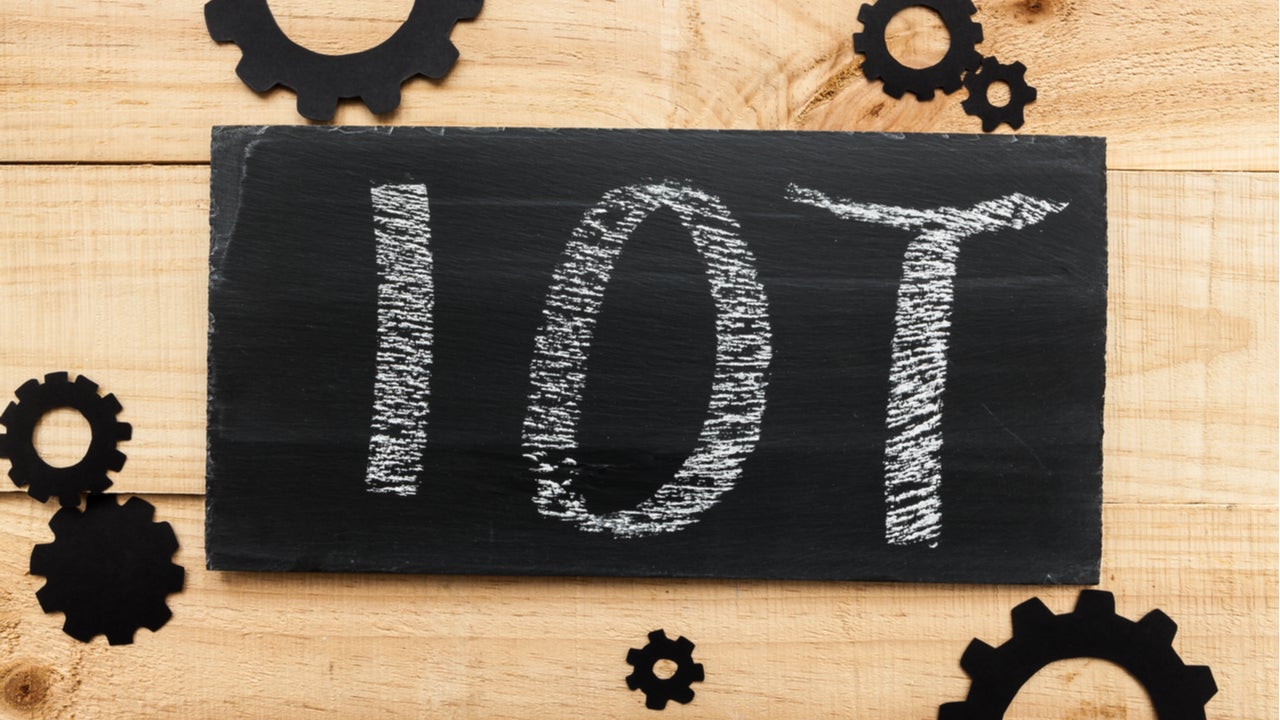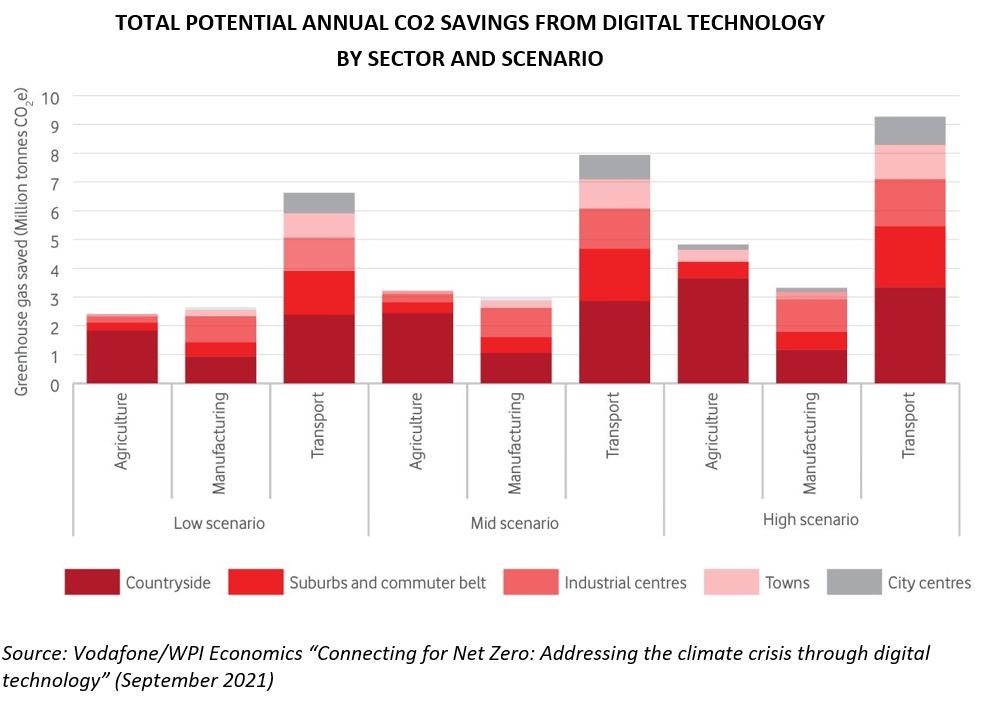
UK telecoms operator Vodafone warned in September that the UK government has much more to do to meet aggressive emissions reduction targets that call for a 78% reduction in carbon emissions by 2035 and net zero emissions by 2020. The company believes its Internet of Things (IoT) solutions can help.
In a new report issued in conjunction with political communications consultancy WPI Economics, Vodafone pointed to slow progress in important sectors including agriculture, manufacturing, and transport where IoT could potentially deliver important progress.
In these three sectors alone, Vodafone estimates that existing IoT technology has the ability to reduce between 11.7 million and 17.4 million metric tons in annual greenhouse gas emissions – at the high-end, that would represent 4% of total UK emissions, or approximately the total emissions in the North East of England). The benefits of IoT vary by population density – Vodafone estimates that in city centers, 87% of the benefit would come from smart transportation solutions; by contrast, agriculture would drive 38% of emission reductions in rural areas.

In order to fully realize these emissions reductions, Vodafone issued a call to action for the UK government. Among its recommendations:
- Set clearer targets and benchmarks for the adoption of digital technology within the company’s 2050 zero net emissions strategy.
- Incentivize adoption of IoT and 5G technologies in key sectors to accelerate emissions reductions.
- Increase the weight given to carbon reduction technologies and vendors’ internal carbon reduction targets in procurement processes.
- Expand the role of UK programs such as Digital Catapult and Connected Places Catapult that are tasked with accelerating digital technology innovation and adoption in high impact sectors of the economy.
- Allocate £500 million of public funding to regional innovation centers focused specifically on IoT and 5G applications that can reduce carbon emissions.
- Enable interoperability among solutions by introducing regulation to drive common security and data standards in IoT devices.
- Introduce a regulatory and policy framework that “creates the right signals for investment” in mobile networks across the UK.
For all the focus on the lead-up to COP26, the next annual UN climate change conference happening in Glasgow, Scotland in November, Vodafone also offers another, less altruistic rationale for focusing on 5G-based digital solutions to reduce carbon emissions: jobs. According to the September report, Vodafone estimates that 5G could add £6.3 billion to the value of UK manufacturing by 2030 and create 175,000 additional jobs across the economy.
How well do you really know your competitors?
Access the most comprehensive Company Profiles on the market, powered by GlobalData. Save hours of research. Gain competitive edge.

Thank you!
Your download email will arrive shortly
Not ready to buy yet? Download a free sample
We are confident about the unique quality of our Company Profiles. However, we want you to make the most beneficial decision for your business, so we offer a free sample that you can download by submitting the below form
By GlobalData






